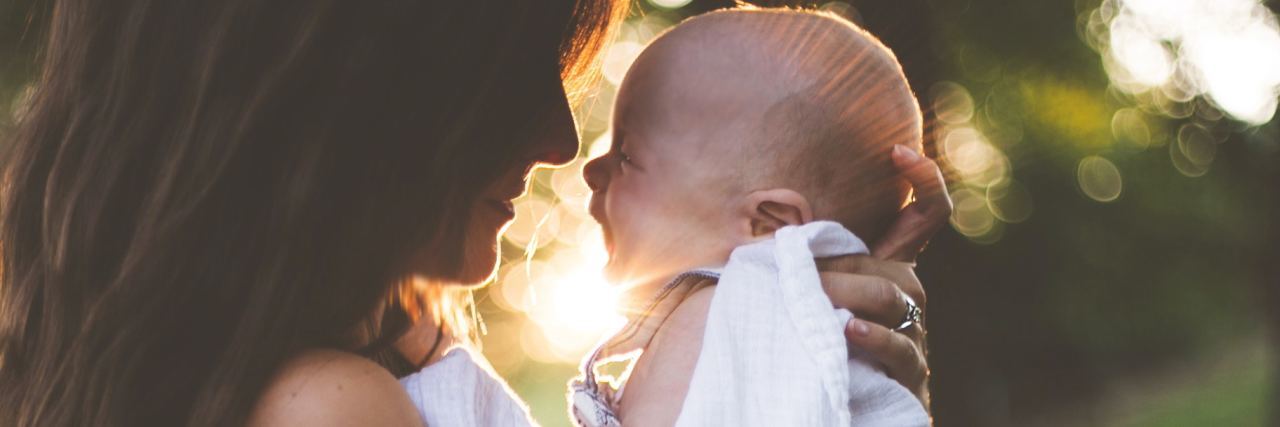How I Stopped Longing for My Biological Mother and Started to Heal From My BPD
I was born in South Korea sometime in the late summer of 1958. In the winter, I was abandoned in the garden of an orphanage in Seoul. I lived there for approximately six months before finally being adopted to my new parents in the United States.
I grew up knowing that I was adopted from a very early age. My adoptive mother always stressed how much they wanted me and that I was chosen from a selection of about 100 other children. The social worker brought a great big binder full of photographs and stories of all the other children who were also up for adoption. So, a part of me always felt special, but there was a much bigger part of me that felt utterly rejected and abandoned. I mean, who leaves their baby in a basket in a garden in the dead of winter?
As a child, I engaged in many different fantasies about my biological mother. I imagined her as a young woman who had a dozen children and when I came along, there were just too many mouths to feed and so I had to go. I always wondered whether or not I had siblings. I spent countless hours wondering what she looked like, what her voice sounded like, how she smelled. There was this great big hole in my life where she once was and there was no way for me to fill it.
I spent a lot of time wondering about whether or not I could ever find her but the brutal reality of it was that I had been left with nothing: no clothes, no identification, no name tag. I ended up feeling like garbage that had simply been discarded for myriad unknown reasons.
When my own daughter was born, I came face to face with this longing once again. Looking into her eyes, I could see my heritage and hear it calling me. I felt all those feelings stir up inside of me again. So, one day, I picked up the phone and made a call to the orphanage. Now, this was a very bold move because at that time, long-distance telephone calls were extremely expensive and the idea of calling South Korea all the way from Toronto, Canada was almost unheard of. But when the woman on the other end of the phone answered, I blurted out my name and told her my story. She identified herself as Sister Philomena and I instantly recognized that name as the headmistress who had cared for me. She and my mother had corresponded for years. She professed to remember me!
She told me that my biological mother had probably been an illiterate, poor farm girl who had become impregnated by a passing solder from a local garrison. She encouraged me to put my desire to find her behind me because it would be, as she said, nearly impossible to locate her. Some answers but many more questions.
So, I changed my story. I began to imagine my biological mother had been murdered in an honor killing by my biological grandfather and it had been my biological grandmother who had whisked me away to the orphanage’s garden, where she left me knowing I would be safe and sound. This story made the most sense to me because all one had to do was look at me to realize I was not full-blooded Korean. I imagined my biological grandfather had been full of shame when I was born because not only had I been born out of wedlock, but it was obvious I was the product of a sexual encounter with a non-Korean.
Even though I now know that honor killings such as this were not at all common in Korea in the late 1950s, when I was born, this story was enough to allow me to finally put my desire to rest. I eventually came to the realization that even if I were to conduct a search and be able to locate her, the relationship would probably be doomed to failure. She and I shared nothing: no common memories, a common language or even a religion. I came to realize I would never want to feel emotionally obligated to someone with whom I didn’t even share DNA.
These discoveries were what finally allowed me to put her firmly in my past and move beyond her. It took a long time to get there. I was almost 30 years old before I came to this understanding. Now, I very rarely even think about this woman, but when I do I am only grateful she had the good sense to send me on my way, to a much better and brighter future. Had I grown up in Korea, because I was of mixed heritage, I would have been treated like a second-class citizen my entire life. I would not have been permitted to go to school or even get married. Being able to grow up in the United States provided me with almost endless opportunities.
There is no question that my formative first year had a great impact on me and is most likely what led me to develop my borderline personality disorder (BPD), but being able to finally put all these questions to rest once and for all is what allowed me to finally start to really heal from my BPD.
Follow this journey on the author’s blog.
Photo by Julie Johnson on Unsplash

